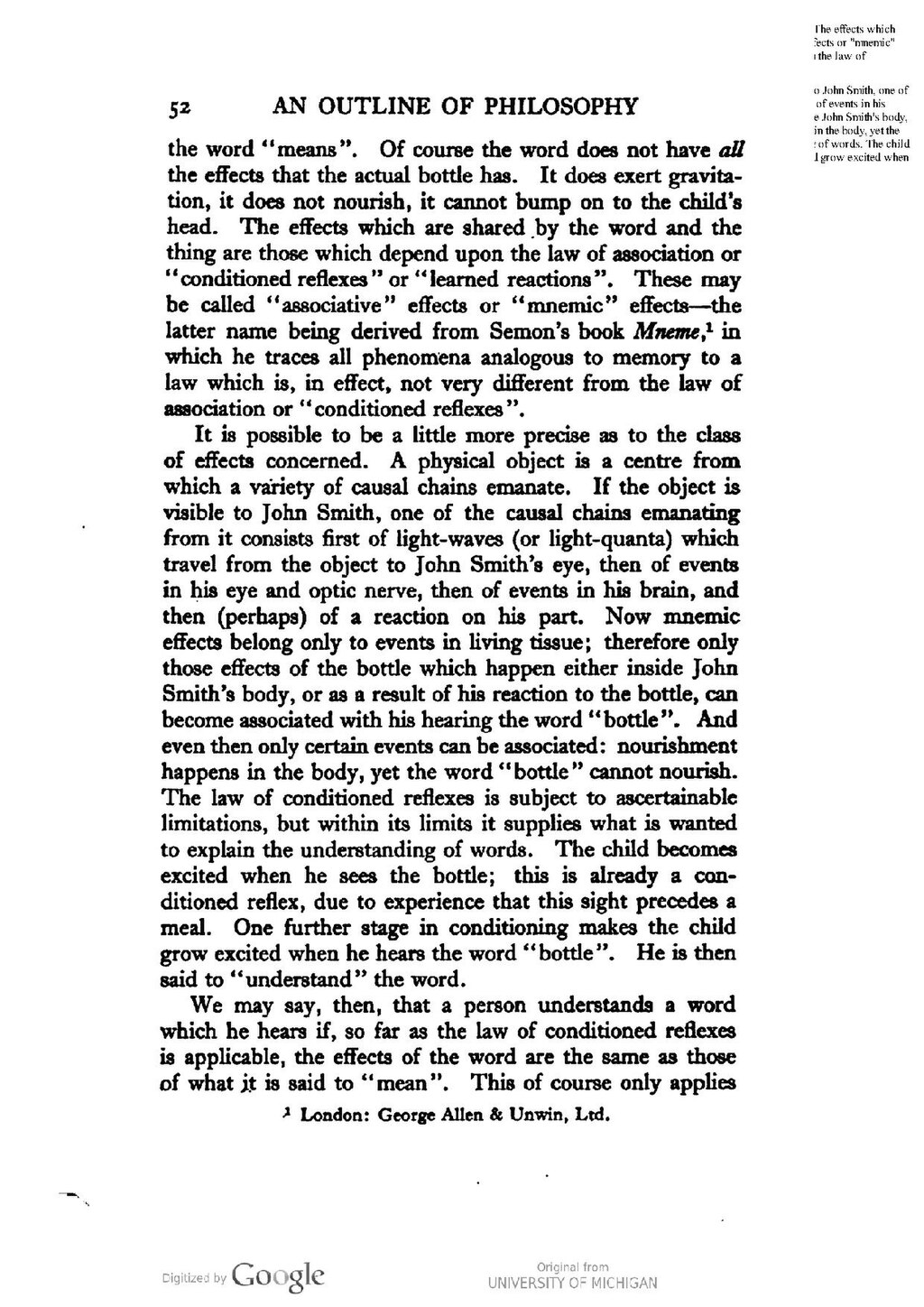the word "means". Of course the word does not have all the effects that the actual bottle has. It does exert gravita- tion, it does not nourish, it cannot bump on to the child's head. The effects which are shared by the word and the thing are those which depend upon the law of association or "conditioned reflexes" or "learned reactions". These may be called "associative" effects or "mnemic" effects-the latter name being derived from Semon's book Mneme,[1] in which he traces all phenomena analogous to memory to a law which is, in effect, not very different from the law of association or "conditioned reflexes".
It is possible to be a little more precise as to the class of effects concerned. A physical object is a centre from which a variety of causal chains emanate. If the object is visible to John Smith, one of the causal chains emanating from it consists first of light-waves (or light-quanta) which travel from the object to John Smith's eye, then of events in his eye and optic nerve, then of events in his brain, and then (perhaps) of a reaction on his part. Now mnemic effects belong only to events in living tissue; therefore only those effects of the bottle which happen either inside John Smith's body, or as a result of his reaction to the bottle, can become associated with his hearing the word "bottle". And even then only certain events can be associated: nourishment happens in the body, yet the word "bottle" cannot nourish. The law of conditioned reflexes is subject to ascertainable limitations, but within its limits it supplies what is wanted to explain the understanding of words. The child becomes excited when he sees the bottle; this is already a conditioned reflex, due to experience that this sight precedes a meal. One further stage in conditioning makes the child grow excited when he hears the word "bottle". He is then said to "understand" the word.
We may say, then, that a person understands a word which he hears if, so far as the law of conditioned reflexes is applicable, the effects of the word are the same as those of what it is said to "mean". This of course only applies
- ↑ London: George Allen & Unwin, Ltd.
